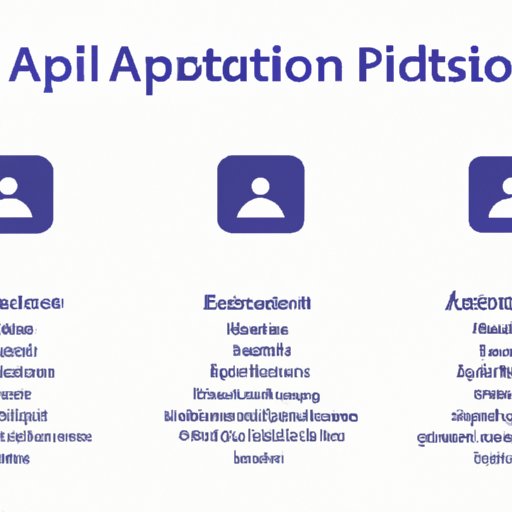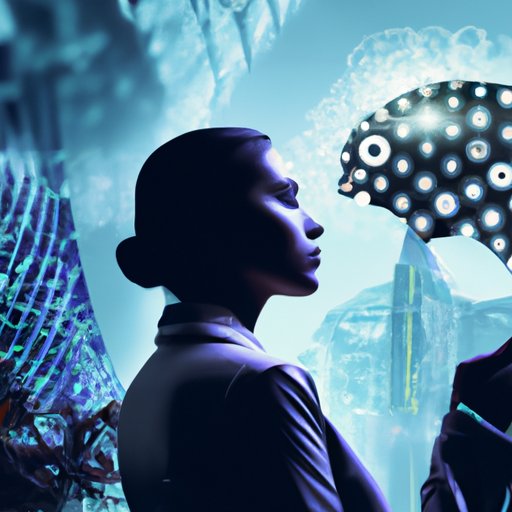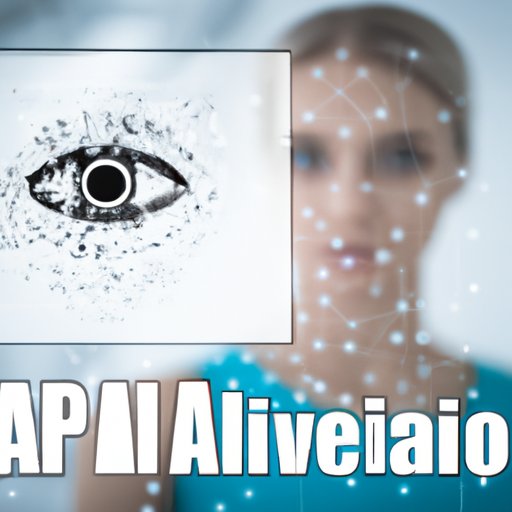Introduction
Artificial intelligence (AI) has become an increasingly important part of today’s world. From self-driving cars to virtual assistants, AI is everywhere. But what exactly is applied AI? Applied AI refers to the use of AI technologies in specific contexts and applications. It involves taking existing AI technologies and applying them to solve real-world problems. This article will explore the basics of applied AI, its benefits, challenges, and potential implications for different industries.
Exploring the Basics of Applied AI
Applied AI is becoming more and more popular, as businesses are finding ways to leverage AI technology to improve their processes and increase their efficiency. AI can be used to automate repetitive tasks, analyze large datasets, and even make decisions. However, before implementing applied AI, it is important to understand the benefits and challenges associated with it.
Benefits of Applying AI
One of the main benefits of applying AI is that it can help organizations save time and money. According to a study by Accenture, companies that implement AI solutions can see up to 40% cost savings. AI can also improve accuracy and reduce errors. For example, AI-based systems can be used to detect fraud or errors in financial transactions. Additionally, AI can help organizations make better decisions by providing insights into customer behavior or market trends.
Challenges of Implementing Applied AI
Although there are many benefits to using AI, there are also some challenges. One of the biggest challenges is ensuring that AI systems are secure and reliable. As AI systems become more complex, they can be vulnerable to cyberattacks or data breaches. Additionally, AI systems require large amounts of data to train and operate, which can be difficult to obtain. Furthermore, AI systems can be expensive to develop and maintain.

Types of Applied AI Solutions
There are several types of AI solutions that can be used in different contexts. These include machine learning, deep learning, natural language processing, and computer vision.
Machine Learning
Machine learning is a type of AI that enables machines to learn from data and improve over time without being explicitly programmed. It uses algorithms to process data and identify patterns, which can then be used to make predictions or recommendations. Machine learning can be used to predict customer behavior, detect anomalies, or recommend products.
Deep Learning
Deep learning is a subset of machine learning that uses artificial neural networks to process data. Neural networks are composed of layers of interconnected nodes that can learn from data and make decisions. Deep learning can be used to recognize objects in images, understand speech, or generate text.
Natural Language Processing
Natural Language Processing (NLP) is a type of AI that enables machines to understand human language. NLP can be used to analyze text or speech and extract meaning from it. It can be used to answer questions, generate summaries, or translate languages.
Computer Vision
Computer vision is a type of AI that enables machines to “see” and recognize objects in images or videos. It can be used to detect faces, classify objects, or track movement. Computer vision can be used for a variety of applications, such as surveillance, autonomous vehicles, or medical imaging.

Examining the Future of Applied AI
As AI technology continues to develop, it will be used in more and more industries. AI can be used to automate processes, improve customer experience, or optimize operations. However, it is important to consider the potential implications of AI on different industries.
Potential Implications of AI on Different Industries
AI has the potential to revolutionize many industries. For example, AI can be used to automate services in healthcare or transportation, which could lead to improved care and lower costs. AI can also be used to improve customer service, making it easier for customers to interact with companies. Additionally, AI can be used to create new products and services, such as personalized recommendations or virtual assistants.
Social and Ethical Considerations
While AI can have many positive impacts, it is important to consider the social and ethical implications of AI technology. AI systems can be biased if they are trained on biased data, which can lead to discriminatory outcomes. Additionally, AI systems can be used to manipulate people or spread misinformation. Therefore, it is important to consider the potential risks of AI technology and ensure that safeguards are in place to protect people’s privacy and safety.
Conclusion
In conclusion, this article has explored the basics of applied AI, its benefits, challenges, and potential implications for different industries. Applied AI can be used to automate tasks, analyze data, and make decisions. It has the potential to revolutionize many industries, but it is important to consider the potential risks and ensure that safeguards are in place to protect people’s privacy and safety.
(Note: Is this article not meeting your expectations? Do you have knowledge or insights to share? Unlock new opportunities and expand your reach by joining our authors team. Click Registration to join us and share your expertise with our readers.)
